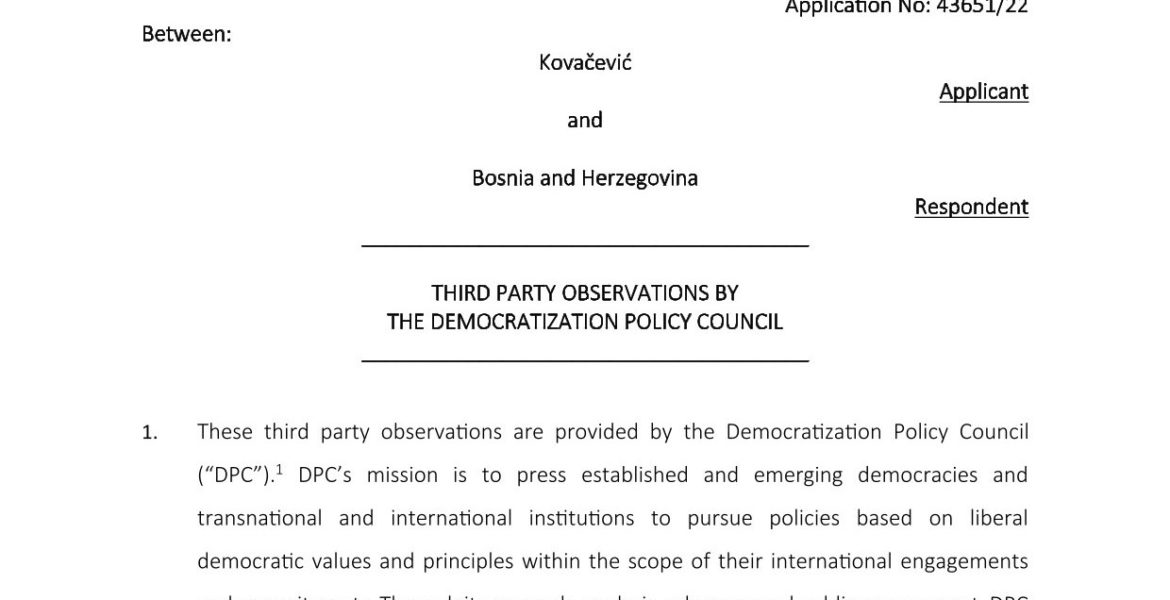DPC 3rd party intervention
THIRD PARTY OBSERVATIONS BY THE DEMOCRATIZATION POLICY COUNCIL
1. These third party observations are provided by the Democratization Policy Council (“DPC”). DPC’s mission is to press established and emerging democracies and transnational and international institutions to pursue policies based on liberal democratic values and principles within the scope of their international engagements and commitments. Through its research, analysis, advocacy and public engagement, DPC seeks to draw the attention of policymakers, legislators and civil society to encroachments on freedoms within the democratic framework.
2. Since its foundation in 2007, DPC has closely followed the political and security developments in the Western Balkans and the role of Western actors, in particular the US and the European Union, in line with its stated mission. DPC has undertaken wide-ranging research, analysis, and advocacy over the years, becoming the most consistent think-tank outside the region, tracking the ups and downs of democratic development and the involvement of outside actors in the six countries of the Western Balkans.
Interest and application to have these observations considered
3. DPC has provided these observations at the same time as making its application to intervene. DPC recognises that this application is made unusually, in that the request to be permitted to make observations is being made at the same time as submitting the proposed observations. This is as a result of the limited time available before the listed hearing before the Grand Chamber, and borne of a desire by DPC not to cause any unnecessary delay. No disrespect is intended toward the Court in this approach. DPC respectfully submits that consideration of these observations would be in the interest of justice for the purposes of Article 36(2) of the Convention and Rule 44(3)(a) of the Rules of Court.
Observations
4. DPC makes these observations because of its reasonable concern that a reversal of the first instance decision would create an artificial ceiling on the potential for citizens to develop constitutional alternatives which would be compatible with the core findings informing the Kovačević ruling, as well as its five antecedents, starting with the Sejdić and Finci cases in 2009…

